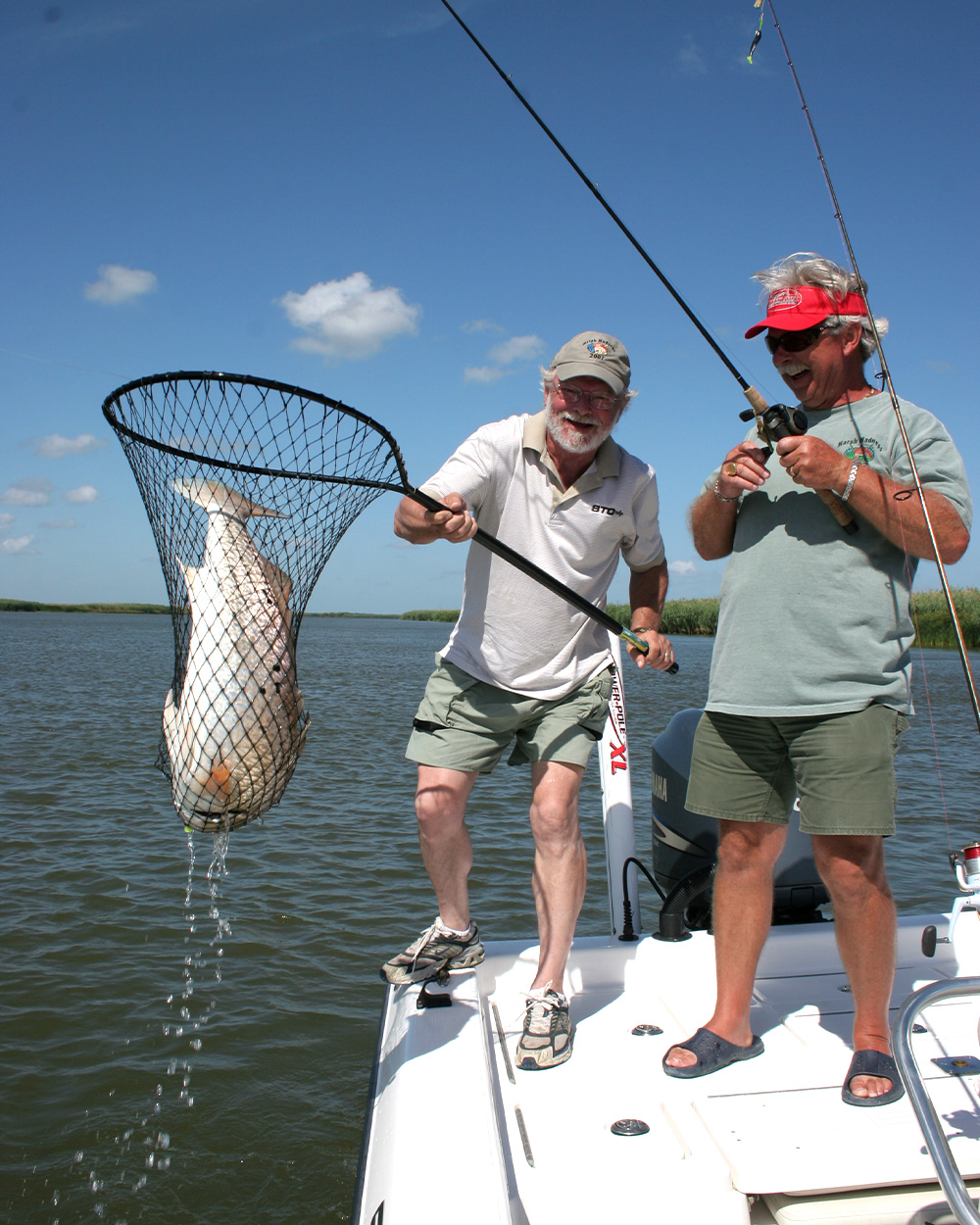The Texas Parks and Wildlife Department is heralding the good news that next week, it will stock its one billionth hatchery-produced saltwater fish, a red drum fingerling, into coastal waters. This milestone is more than 40 years in the making as TPWD has worked with marine biologists and conservationists to ensure that Texas bays have healthy populations of redfish, speckled trout, and flounder well into the future.
Along with hundreds of other one- to two-inch-long fingerlings, the tiny redfish will be released into Christmas Bay, located between Freeport and Galveston. TPWD says it plans to release these fish on July 31.
Texas first started thinking about stocked redfish in the late 1960s and early 70s, when their populations were crashing throughout the Gulf due to commercial overharvest. By 1975, using techniques that were pioneered in Florida, Texas scientists had figured out a way to spawn and rear red drum in captivity.
Photo by Anthony / Adobe Stock
This kicked off an ambitious collaboration between TPWD, the Coastal Conservation Association, and American Electric Power to build a large-scale redfish hatchery in Corpus Christi. Operations began there in 1982, and the first redfish fingerlings were stocked in San Antonio Bay the following year.
In the decades that followed, biologists also learned how to rear seatrout (also known as speckled trout) and Southern flounder, rounding out what Texans call the inshore Grand Slam. Fisheries managers have since produced millions of these prized gamefish at the state’s three main hatcheries, which are spread out strategically along the coastline.
Read Next: How to Catch Inshore Redfish, Trout, and Flounder from a Kayak
“Texas now stocks more marine gamefish fingerlings than any other state,” TPWD deputy resources manager Dakus Geeslin tells Outdoor Life. “Around 80 percent of the fish we stock are red drum, and about 19 percent are spotted seatrout.”
Geeslin says the flounder program — which represents the remaining 1 percent — has only been underway for about 10 years.
“Flounder are a little more involved in hatching and rearing for stocking that reds or trout,” he says. “But we’ve just passed the one million flounder stocking number, which is something we’re proud of.”
TPWD has also been stocking redfish into freshwater lakes, where they can reach heavyweight sizes but can’t reproduce. A pair of power plant lakes near San Antonio receive most of these fish. However, the vast majority of the state’s red drum (between 10 and 20 million annually, according to the CCA) go into the bays, where they intermingle with and help support wild populations.

Photo by Bob McNally
In recent years, Geeslin says, TPWD has done more genetic testing so it can trace the stocked fingerlings and judge how effective the program has been.
“In the eight major bays along our coast, we can see that anywhere from 6 to 17 percent of adult redfish over the years have resulted from our stocking work,” he says. “These numbers validate our efforts, and we know they’re having a positive effect on fish populations.”
Read Next: Massive Fish and Wildlife Kills in the Wake of Southern Ice Storm
These stocking have become even more critical to help speckled trout populations in recent years — especially in the wake of Winter Storm Uri, which killed at least 3.8 million fish along the coast, according to TPWD. Seatrout were among the hardest hit, with an estimated 104,000 lost in the Lower Laguna Madre alone.
“After the brutally cold winter of 2021, when we had that big fish kill, we increased our seatrout stocking threefold, from 3 to 10 million fry, hoping to address that trout die-off,” Geeslin says. “Since then, we’ve seen a marked improvement in our coastal trout population for that year class, and we believe that our stocking number boost is the main reason for it.”
